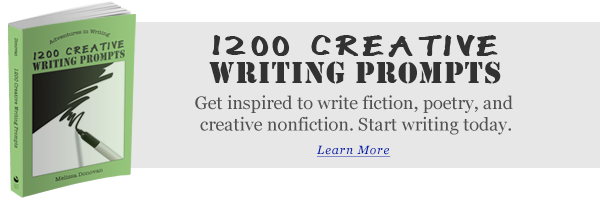Where do dreams come from? Many philosophers, psychiatrists, and other experts, as well as everyday people, have made conjectures about the sources of our night visions. But they remain a mystery.
Some dreams are obvious, of course. We’ve all experienced dreams that are clearly relevant to what’s going on in our lives or dreams that are some reflection of the past. Some people claim they’ve dreamed events before they actually happened — precognitive dreams that allow a dreamer to peer into the future.
Some of us remember every single dream we have. A few of us may even take time to jot down our dreams in a dream journal. Others cannot remember any of their dreams and will claim they don’t dream at all. There are those whose dreams are so vivid that they are induced into sleepwalking, and there are those whose dreams carry the essences of their greatest fears — nightmares.
Some dreamers are so attuned to their dreams that they can actually control a dream while they are having it, which is called lucid dreaming. They decide to fly in a dream, and they are off, soaring through the dream-sky.
Dreaming for Inspiration
Dreams may unlock mysteries, answer questions, or give us new insights. They inform artists’ work, help scientists solve complex problems, and give writers plenty of fodder for fiction and poetry.
In fact, many famous works of art and inventions were inspired by dreams. In an article titled “Dream Art,” Wikipedia provides a list of artists and their works that came directly from dreams. Some of the most notable artists, writers, musicians, and filmmakers who have captured dream material to produce great works of art include William Blake, Salvador Dali, Clive Barker, Mary Shelley, Robert Louis Stevenson, Stephen King, Carlos Castaneda, David Lynch, Rush, Paul McCartney, and Roger Waters, to name a few.
Dreams can even provide the answers to complex technical or scientific problems. Sewing machine inventor Elias Howe was having trouble figuring out how the needle on his machine would work, until one night he had a dream in which he was imprisoned by a group of people who were dancing around him and holding spears that had holes near their tips. This image finally gave Howe the idea he needed to make his invention work: a needle with a hole at the tip, which was designed much like those spears.
Journal Prompts and Dreams
If you’ve ever kept a dream journal, then you have some experience with exploring your dreams during waking hours. When you keep a dream journal, you learn to pay more attention to your dreams, and you start remembering your dreams better and in greater detail. Dream journals are ideal for generating raw creative material.
Today’s journal prompts aren’t based around a dream journal, and they don’t ask you to keep one. If you happen to keep a dream journal, then you’ll have an advantage here, because these journal prompts require you to remember a dream or two. Yet the main goal with these journal prompts is to add another tool to your writer’s toolbox, to leverage a little more of your imagination by paying attention to the messages, images, and signals that your subconscious is broadcasting when you’re sound asleep.
To complete these journal prompts, you do need to be a dreamer. If you don’t make a habit out of remembering your dreams, or if you rarely remember them, then you might try keeping a dream journal for about a week. As you fall asleep, remind yourself that in the morning your first task will be to write down your dreams. Promote dreaming and remembering dreams by repeating affirmations such as “I will dream” and “I will remember my dreams” as you’re falling asleep. Then give these journal prompts a try.
Journal Prompts
- Write down a full account of a dream you’ve had recently. Try to include as many details as possible.
- Think back over some of the dreams you’ve had and try to identify recurring themes. Perhaps you’re often being chased in dreams (or doing the chasing), or maybe a lot of your dreams are set in nature or feature animals.
- Identify the people, creatures, and animals in your dreams by describing them. Could they become characters in your next short story?
- Do you ever notice minute details in your dreams? Elias Howe noticed that in his dream, the spears had holes in them. Try to pinpoint seemingly minor details that appear in your dreams and write descriptions of them.
- Do your dreams ever stick with you throughout the day? Are images from your dreams haunting you as you go about your business? Why do you suppose this happens with some dreams but not others? What are the images that linger?
- Have you ever felt like a dream was trying to tell you something or send you an important message? What was the dream? What message did you come away with?
- If you could construct a full, vivid dream, which you will have tonight and remember in full tomorrow, what would happen in the dream? Who would be there? Where would it take place?
Interesting Facts About Dreams
- The scientific study of dreams is known as oneirology.
- Abraham Lincoln dreamed of his assassination.
- At one time, some experts believed that dreams only happened in black and white. Most people actually dream in color.
Sources:
- “Famous Dreams” (includes source material) [Note: site is now down]
- Wikipedia: “Dreams“
Good luck with these journal prompts! Now let’s talk about dreaming and how we can use dreams to inspire our writing!






Very cool! That would be very cool to have prescriptive guidance on how to dream. It’d be even cooler to have prescriptive guidance on how to make your dreams come true 😉
There are a lot of books on dreaming and how to control your dreams while you’re having them (lucid dreaming). I’m pretty sure there are also lots of books about making your dreams come true!
This is fascinating, Melissa! I had forgotten that tidbit about Abe Lincoln!
And I love these prompts. 🙂
I’m a pretty vivid dreamer–sometimes it feels like I didn’t even sleep! LOL
*smiles*
Michele
It’s funny — sometimes I remember all my dreams in detail. Then weeks (or even months) will go by, and it seems like I haven’t been dreaming at all. Dreams are fascinating, and that’s why they’re great for writing inspiration.
Journaling my dreams has been on my list for quite a while – you’ve given me a jumpstart and the inspiration to get going! Thanks for sharing!
I have kept a dream journal off and on throughout the years. I find that the more you try to remember your dreams so you can write them down, the more you actually do remember. Like anything, practice makes perfect.
Dreams are so fascinating. I often find I work out things that are troubling me via dreams, and that the solutions stay with me when I wake up. Sometimes, the dreams are relevant to something I’m writing — or, last week, to something I’m not writing, but perhaps should write.
I find I get nightmares right before a major life transition –even if I don’t know consciously it’s coming.
Dreams are pretty bizarre. Sometimes they’re so soothing, other times so troubling. Keeping a dream journal has helped me better understand my dreams, and sometimes things show up in my dreams that make it to my writing, and I find that happens mostly when I’m writing them down.
my sister writes from her dreams. I am “inspired” by dreams sometimes, but my final idea is almost never anything what my dream was like.
P.S. I have a theory about dreams: There’s the “Dream Universe” and our Universe. If the Dream Universe was 2.0 and we were 1.0, when we go to sleep and dream, we’re somewhere between those realities, i.e. Level 1.6
There has been much written about dreams existing on another plane, and that in some dreams we actually travel to a different dimension. I don’t know if that’s true, but the idea definitely intrigues me!
Dreams are actually our thoughts that are in the sub-conscious and will manifest in our minds. Often we dream about with problems and wake with new ideas. It seems our inner workings of the mind is something we seldom explore or should think about while awake.
Melissa, thanks for stopping by to comment on my blog. I make my living writing, so of course I check the legitimacy of every anthology to which I even consider a submission. This is a perfectly legitimate anthology from a perfect legitimate publisher; but something felt off as far as being the right fit for me; I’m glad i went with my gut — it was a huge burden lifted from me.
Hi Devon. That’s a relief. I worry too much about those scam sites. Yes, a publication definitely has to be the right fit.
Good stuff.
Maybe I should wait for my G or at least PG rated dreams.
I always enjoy your prompts.
Heheh, don’t let that stop you from writing!
I’ve had many amusing dreams. The most amusing usually takes place in the Chin (Qin) Dynasty of China. The dynasty ended in 1911, and I always thought they are goofy looking, because this is a period of transition where you can see people wearing traditional clothes, but using some relatively modern gadgets (such as eye glasses). Of course, in my dreams it’s taken up a notch. I would see horses and carriages pulling into a parking lot, turn into a space, and just stand there until the drives come back. There are also valet guys standing in front of an inn to park these horses and carriages for patrons. And then they also have problems parallel parking these things. These are the kind of dreams that I wake up laughing from because they just look so ridiculous to me. Juxtaposition of the modern and ancient is a common theme for my amusing dreams.
And then there’s the one that I have many times of missing a big final exam. I would just be wondering around the campus and then when I look up at the clock, I think, “Hey, isn’t there a test going on? Hm, I am missing it.” Maybe that should be making me nervous, but I really don’t feel any of that. It’s like, meh, I don’t really care.
Wow, you have historical dreams? That’s wild. I don’t think I’ve experienced that before, but it would be very cool, albeit bizarre. I think I used to dream about tests and due dates when I was in school and I’ve definitely had jobs that leaked into my dreams. Sounds to me like you take your schooling very seriously, and that’s not so bad.
What a great way to ride on the magical worlds you find in your dreams. It’s neat to take the concept of the dreams further and reflect upon how they change you during your daily going ons. Adds another layer to the dreams.
The key, of course, is listening to your dreams, writing them down, and letting the story unfold. And it definitely adds another layer to your dreams.
writing creatively
Whats funny is that my dreams are really slow paced; as if it’s just waiting for me to make a move.
there are some times where I got to actually play a part in that dream, but like it rarely happens! To top things off, I only remember about 2 of the dreams I have each night, and then those dreams get continued the next! It does help me remember what dreams and ideas I do have for stories though, because its just sitting in my mind almost half of the night. It’s honestly really weird..
It’s interesting that your dreams continue the next night. That’s pretty cool.